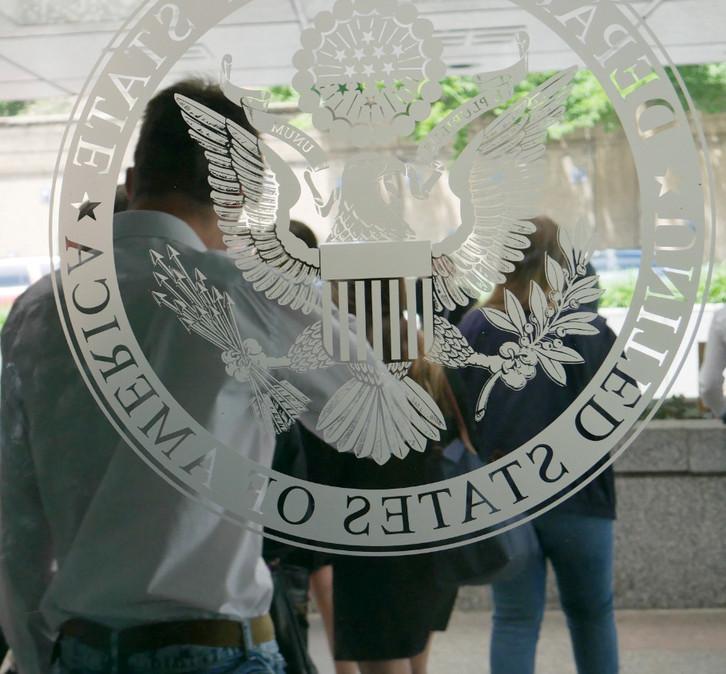
On April 18, Foreign Affairs released an article by former Undersecretary of State for Political Affairs, or “P”, William Burns, on how to save the Department of State. That evening, the Foreign Policy Association hosted a lecture by his predecessor as “P”, Nicholas Burns entitled “The State of the Department of State.” The Burnses are unrelated except by their tenure in the number three position in the State Department. That commonality came out in their deploring the condition of the State Department and U.S. diplomacy, in terms familiar to any who follow Foreign Service discourse.
That discourse, including the two presentations last week, includes thoughtful reflections on U.S. diplomacy such as James Jeffrey’s “Making Diplomacy Great Again,” plus Kori Schake’s book “State of Disrepair,” any number of other articles by think tanks or in the Foreign Service Journal, and indeed, the “Listening Report” for State and USAID done under Rex Tillerson. There are a range of considered and innovative approaches, including Schake’s suggestion that State needs a legislative “grubstake” and should make its work serving American citizens abroad its Congressional calling card.
Hanging over the discussion is a question actually put forward in the Tillerson report. What is State’s mission? The report notes that “People speak from their place in the organization, not from the organization as a whole,” and calls for crafting of a mission. William Burns cites the need to nurture “smart policy judgment, language skills and a feel for … foreign countries…” but also notes that “renewing American diplomacy will be impossible without … a broadly shared sense of the United States’ purpose in the world …” This is a long way from George Kennan’s call for containment of the Soviets, in his conviction in “the American people … pulling themselves together and accepting the responsibilities of moral and political leadership that history plainly intended them to bear.”
The major obstacle to a broadly shared U.S. purpose is the increasingly direct role of politics in policy making. The Foreign Service has long chafed at the growing number of political appointees, and at the idea that the National Security Council sets foreign policy. While many now complain of the Trump White House’s clear disdain for the Department, State’s marginalization in policy making has been building for decades. The growing role of White House staff has long been thinning any buffers between national policy and outright politics. Combined with our partisan political standoff, we now project that polarization directly into the world. As it gets reduced to one more partisan tool, foreign policy loses any other purpose. The result is “polaralysis” of thinking as policy oscillates between the two factions’ ideological trenches in their war’s ebb and flow between the lines.
The diplomat needs a broad sense of national purpose because credibly representating a nation requires a base of thematic coherence, if not continuity in policy objectives.
The nature of diplomacy and a review of America’s nature do offer a foundation for American coherence, and for the U.S. diplomat’s professional capacity. The venerable image of the diplomat has been of an intimately familiar representative of the sovereign, which until a century ago was generally a personal monarch. America’s sovereign is no individual person. It resides in our founding creed. It is not embodied in any President, nor even in the Constitution. The latter embodies the nation’s state, and confers the diplomat’s legitimacy. But America defined its nationality in the Declaration of Independence: the signers spoke for a people, identified as “we” who hold certain truths, of unalienable rights and government serving their preservation. No other national entity existed before the Continental Congress that declared independence, and most of the document’s language only recited Britain’s abuses.
The Declaration’s creed, though, contains paradoxes and problems, due to its abstract nature, to disconnects between living political practice and its expressed principles, and to deep questions of philosophy. It is further complicated by our battle of bespoke interpretations, which append politicized stances to the raw words.
To know the creed and its issues, to extract national common ground from the founding principles, is the moral equipment necessary to represent America as a singular sovereign through our changing political outcomes. Such a capacity will become more and more necessary. Developing societies are beginning to assert their own values, rising powers are challenging America’s influence in the world, and we no longer have a totalitarian bogeyman as the looming alternative. We need to be able to tell our own story, to project our own narrative, to secure our moral legitimacy and to validate any who seek the kind of freedom we created ourselves for.